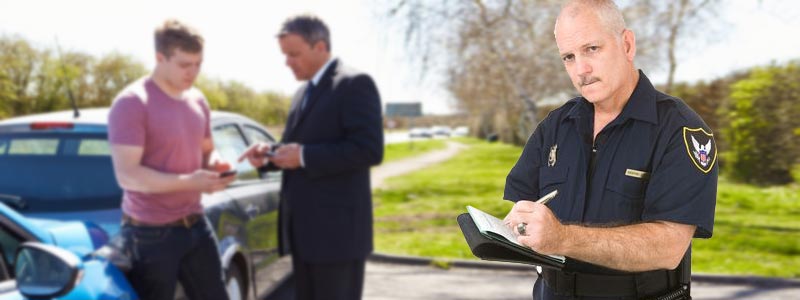
February 27, 2017 | Motor Vehicle Accident | Accident Report, Car Accidents, New York State
A police report is always a good idea
You may at times have wondered whether it’s really necessary to wait for an officer to arrive at the scene of an accident to issue a police report. Perhaps the damage is minor and no one is hurt, so you think it should be enough to exchange license, registration and insurance information. New York State law requires that drivers stop and exchange information at the scene of an accident, but the law goes even further.
What are you required to do?
Your obligation depends on the circumstances of the accident.
- If the accident causes only minor property damage, then you can exchange license, insurance and registration information with the other driver and be on your way.
- If you’ve hit a parked vehicle or a domestic animal, you must locate the owner or contact the police.
- When the property damage exceeds $1,001, all of the drivers involved with the accident are required by law to file a police report within 10 days.
- If anyone is injured or killed in the accident, you are required by law to contact the police immediately to file an accident report.
Two kinds of accident reports
There are two types of accident reports. One is the official police report which is issued by the responding officer at the scene of an accident. The other is an unofficial report, which is created by one or more parties reporting the accident to the police at the station. In some areas, there are too many car accidents to enable police to respond to every accident scene, but generally a police officer will be dispatched in cases where:
- There are injuries
- The vehicles are blocking traffic
- One or more of the drivers is intoxicated
- There is fighting between the drivers or passengers at the scene
It’s always a good idea to have an officer come to the scene if you can
Although the law allows for certain instances where it is not necessary to call the police immediately, in any accident that there may be injuries, you should always request an accident report from an officer at the scene. Having a written account of the circumstances of the accident taken at the scene, as well as statements from both drivers can be a deciding factor when it’s time to seek compensation for serious injuries.
At the time, it may seem that the other driver is a reasonable person, he may even be accepting blame for causing the accident. Unfortunately, that may all change when he has time to think it over and especially after speaking to his insurance company. It is much harder for someone to change their story after the fact if they’ve given a statement to a police officer at the scene of the accident.
A police report generally includes:
- Date and time of the accident
- Statements from both drivers
- Witness statements
- Road and weather conditions
- Detailed description of the vehicles involved
- Written description, including his own observations.
- A diagram of the accident scene
- A description of the visible damage to the vehicles.
In addition, if the officer suspects that alcohol may have been involved, he will take the necessary steps and possibly make arrests for DUI.
What to do if the other driver won’t wait or the police aren’t able to come?
In some cases, it may take a long time for the police to arrive or they may not come at all. If the other driver is pressuring you to leave the scene without contacting the police, consider asking the other driver provide you with either a written or recorded video statement in exchange for not waiting for the police. If the other driver’s statement is in written form, be sure that he signs and dates it. Any statement should include his description of how the accident occurred, including accepting responsibility for having caused the accident.
In any case, you should take pictures at the scene. Particularly if you believe the other drive may not wait for the police, be sure to take a photograph of him and his vehicle, including the license plate.
How a police report helps your case
Shortly after the accident, the other driver’s insurance company will begin investigating the accident. They will be looking for evidence that the police officer’s account indicating their client is at fault is flawed or incorrect. Unless the insurance company uncovers additional evidence that the officer was unaware of, an officer’s report written at the scene of the accident will be more convincing to a jury than an insurance company’s investigation. A police officer, is an uninvolved third party with training on making observations at an accident scene, therefore he is general afforded automatic credibility in these situations. In addition, each driver’s immediate statement is likely to be taken as the truth, regardless of how they attempt to change their story after the fact.
What about your statement to the police?
You must tell the truth to the police officer. This means reporting the facts as you remember them. Even if you believe you are at fault for the accident, do not say that to the officer or other driver. Your responsibility is to truthfully give your account of what happened, but not to make a judgement on whether or not you are at fault for the accident.
What to do next
If you have been seriously injured, it’s important that you receive compensation. Protecting your rights is not easy, and the insurance company’s interests are in paying as little as possible.
Attorney Greg Bagen offers a free consultation where he will help you understand your legal options. He has a long history of helping accident victims in Putnam County, give him a call to find out if he can help you.

